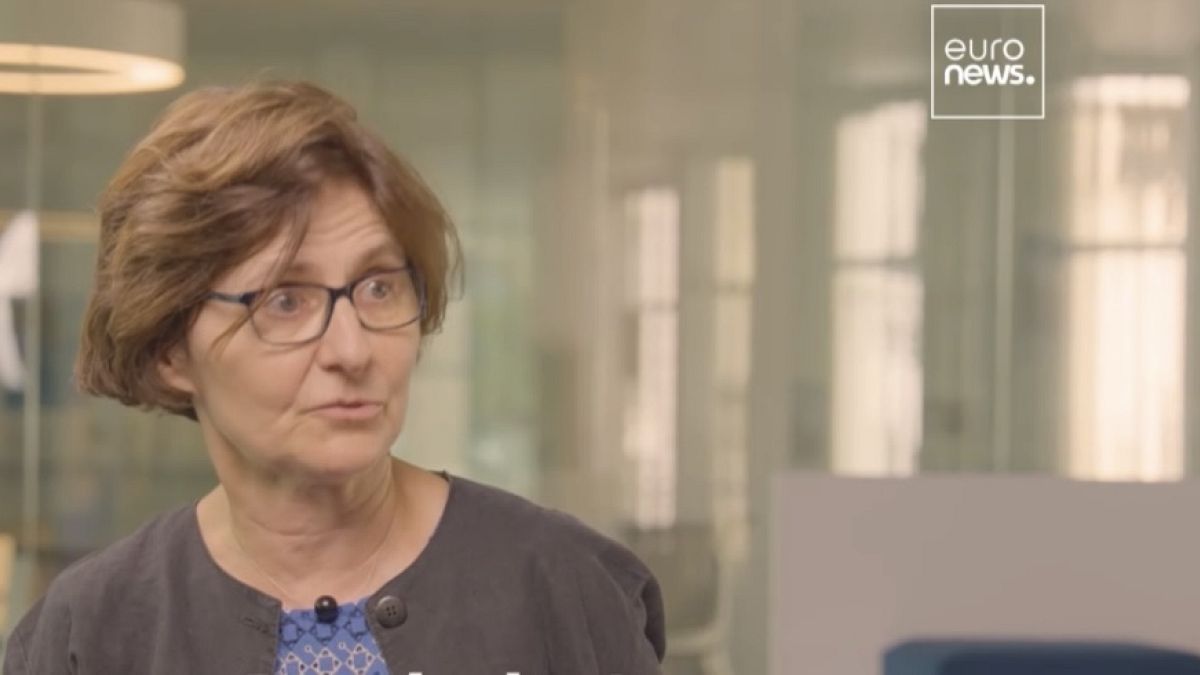Agnès Bénassy-Quéré, the deputy governor of the Bank of France, recently engaged in a conversation with Euronews’ Angela Barnes regarding the pressing challenges faced by central banks, particularly with the upcoming European Central Bank (ECB) interest rate decision looming on September 12.
While Bénassy-Quéré is limited in her commentary on the ECB’s upcoming announcement, she emphasized the importance for the public to stay informed about economic indicators and addressed the hurdles that lie ahead for central banking institutions.
Key Challenges Facing the Bank of France
Bénassy-Quéré outlined three significant challenges for the Banque de France: disinflation, technological innovation, and climate change .
“Climate change poses real challenges for central banks,” she remarked, noting that “Natural disasters tend to increase inflation, while the transition to green policies can also disrupt price stability.”
Agnès acknowledged the urgent need for government action to address climate issues but cautioned that if not managed properly, such actions could have two detrimental economic effects.
“These could lead to inflationary pressure through carbon taxes and risk depleting public finances, thereby placing more responsibility on central banks to stabilize the economy.”
The Importance of Monitoring GDP and Inflation
It might seem insignificant when hearing that a country’s GDP has dropped by 2%, but the implications are profound.
“National GDP stands at about €2,600 billion,” she explained, emphasizing that stagnation in GDP directly affects purchasing power . If GDP fails to grow, households cannot expect their purchasing power to increase.
To illustrate, according to the Banque de France, each percentage point drop in GDP translates to a loss of €26 billion for France’s economy.
Furthermore, if inflation rises without corresponding wage increases, it diminishes gross disposable income by approximately €16 billion per inflation point.
Despite recent global upheaval, Bénassy-Quéré reaffirmed that French purchasing power has remained stable. The unemployment rate has even dipped below pre-Covid levels, thus enhancing purchasing power.
“It’s remarkable, yet people remain skeptical,” she added.
Factors Contributing to Economic Growth in France for 2024
Besides cultural events like Taylor Swift’s concerts in Paris, Bénassy-Quéré provided insights into economic data related to the Olympics.
“After surveying around 8,000 companies in France, we project that the quarter-on-quarter GDP growth for the third quarter may see an increase of about 0.25%,” she reported.
“This boost largely stems from sectors including hospitality, transport, security, and ticket sales. However, it’s essential to note that this is a short-term uplift, expected to last only one quarter, after which the economy will revert to its usual growth trajectory.”
You can watch the complete interview with Agnès Bénassy-Quéré, deputy governor of the Bank of France, here .
Photo credit & article inspired by: Euronews



